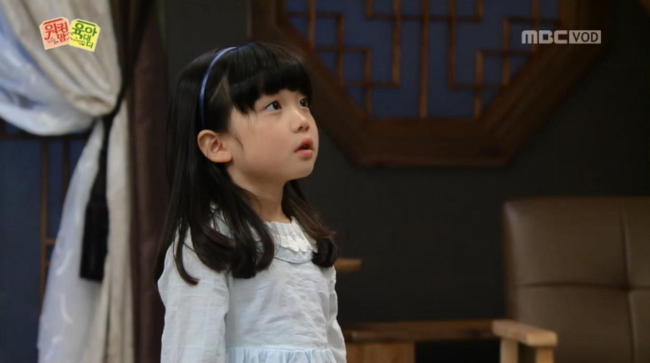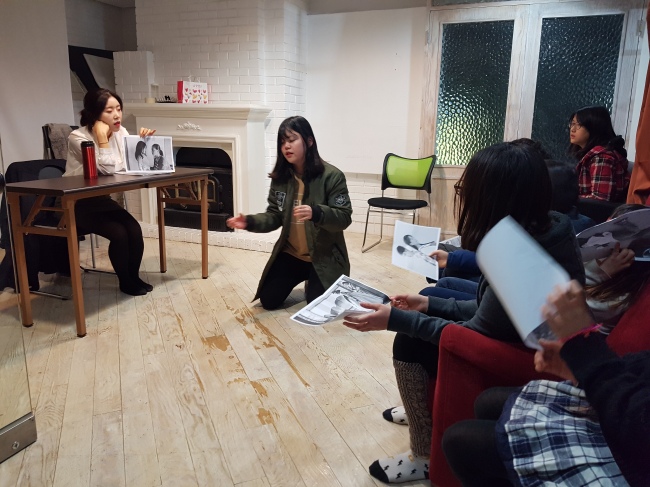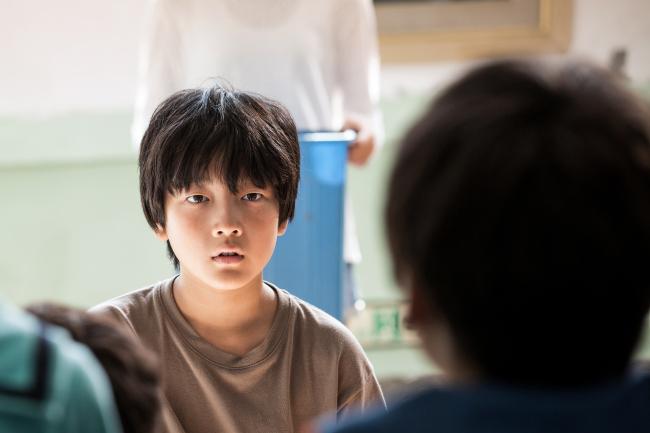A banner at the door of children’s modeling and acting agency Olive Entertainment, located in western Seoul, features the recognizable faces of young trainees who have gone on to star in ads, films and TV shows. It also reads, “Make your dreams come true.”
The rising fame of child actors on the big and small screen has led to growing numbers of children seeking stardom from an early age. Hand-in-hand with their mothers, hundreds flock to large-scale acting academies, many of which function as one-stop service centers for young talent.
Most of Korea’s large acting academies for children now come fully equipped with in-house photo studios and connections to major television networks, and are even operated alongside management agencies. TI Academy, one such multiplex institute in Gangnam, was founded by casting directors.
Many mothers say they feel confident placing their children within a systemized training process.
“There, our children are coached by professionals who have been in the industry for years,” said Jung Eun-kyung, who hopes her four-year-old daughter will model for commercials. “They know just by glancing at your kid whether she’ll make it or not.”
Eight-year-old Lee Seo-joon, who enjoys acting and wants to become “a talented entertainer,” goes to a training academy once a week after school. Ever since he won a children’s modeling competition at the age of 6, Lee’s mother Yoon Soo-hee has been eager for more opportunities for her son. Several agencies have contacted her through her Instagram account, on which she uploads pictures of her photogenic son.
“There are more chances for actors who start out as children,” Yoon said. “I feel like they have better careers and a better public image. It’s better to start young.”
 |
Child actress Ko Na-hee, who trains at the TI Academy, stars in the MBC drama “Working Mother, Babysitter Father.” (MBC) |
She rolled off a tally of successful teenage actors who debuted as kids -- Kim Yoo-jung (“Love in the Moonlight”), Yoo Seung-ho (“Seondal: The Man Who Sells the River”) and Yeo Jin-goo (“Jackpot”).
The doors of acting academies, however, are open only to a select few. There is a strict screening process at most large institutions, which require a camera test for admission.
Once in, students undergo diverse forms of training, the institutes say, from physical exercise to dialect coaching, facial expression exercises and memorizing monologues that the children can use at auditions. The monologues are “customized to each student’s expressive strengths, to maximize his or her chances of getting the part,” according to acting coach Kim Hyun-woo.
The process is pricey, but the payback often more than covers the training costs, say mothers whose children have starred on TV.
Fees for weekly acting lessons normally range from 300,000 won ($260) to as much as 700,000 won per month, if individual coaching is included, they say. Photo shoots alone cost from 300,000 won to 500,000 won, complete with makeup and hairstyling provided by specialized photo studios.
Teachers and executives at acting academies say that enrollment has been fueled in recent years by the rise of child actors taking center stage in the entertainment sector.
 |
Students improvise scenes at an evening acting class at the SG Academy on Nov. 3. (Rumy Doo/The Korea Herald) |
This year in particular has seen a host of riveting performances by youngsters. Kim Hwan-hee, 14, vigorously portrayed a possessed child in Na Hong-jin’s occult thriller “The Stranger (Goksung)”; Shin Eun-soo, also 14, depicted a lonely, imaginative girl in “Vanishing Time: A Boy Who Returned.” Seol Woo-hyung, 5, stole the show on TV series “Lucky Romance.” Jane Lee, 12, who played Bae Doo-na’s childhood character in Netflix’s “Sense 8” last year, will be reprising her role in the show’s upcoming second season.
Acting as a means of creativity, empathy
For some mothers, the art of drama is more about freeing up young creativity, and allowing children to escape, even temporarily, the rigors of social structure.
At SG School, founded by veteran actor Lee Soon-jae, a small class of seven children, aged 9 to 14, take part in an improvisation class. They look at a picture depicting a random scene, imagine its backstory and act it out in front of their peers. Physically and mentally uninhibited, the children let their imaginations run free in a safe and supportive atmosphere.
At an evening class last Thursday, Park Chae-hee, 11, pretended to be a mentally ill patient, holding an open umbrella and looking up as if it offered a window into a new world. “I wish I could live there,” she said dreamily, immersed in her role.
Koo Da-hyun,12, pretended to be drunk, lying down in the middle of the room, while, Yoon Seo-hyun, 10, became a thief impersonating a cop. Shin Ye-won, 12, mimicked a mother exasperatedly waking her stubborn daughter.
“It’s like this every day!” she exclaimed, shaking an imaginary child.
 |
Child actor Lee Hyo-je, 12, stars in the film “Vanishing Time: A Boy Who Returned,” slated to hit theaters on Nov. 16. (Showbox) |
Ye-won’s mother Ko Kyung-sook, present at the class, was surprised. “I’m always waking her up like that, but I never knew she understood my side of things as well.”
Ko explains that though she has no plans to force Ye-won into show business, she wants to let her take acting lessons for as long as possible.
“There was a time when (Ye-won) was depressed and didn’t want to go to school,” Ko said. Though seemingly outgoing, her daughter had “a hard time accepting that what she thought was right could be wrong in the eyes of others.” Burdened with inner conflict, Ye-won had been to a child therapist, who recommended acting as a treatment.
According to Ko, acting out characters has opened Ye-won up to different perspectives. Though Ye-won’s family is currently living in Suwon, an hour’s drive from the Gangnam academy, Ko has been gladly driving her daughter there once or twice per week after school for nearly two years.
“She’s much brighter and more relaxed now. It’s hard to stop coming when you see results like this.”
There is an interview process for prospective students at SG Academy as well, but its purpose is very different.
“We talk to the kids to check that they’re the ones who want to act,” said Kim Yoo-ra, the teacher of the improvisation class. “We want to make sure they’re not being forced to do anything they don’t want to do.”
By Rumy Doo (
doo@heraldcorp.com)










